New England Amateur Radio Inc (NE1AR), an affiliate of New England Sci-Tech, (NESciTech) in Natick, is an early adopter in the area of remotely administered volunteer exams.
From the ARRL VE Newsletter, April 16, 2020:
Facing a growing demand for amateur radio exam sessions in a time of social distancing and stay-at-home orders, sponsors of some Volunteer Examiner (VE) teams have risen to the challenge and are developing systems to remotely proctor test sessions.
“Many of our VEs and VE Teams have been working on remotely proctored exam session ideas, employing both video and in-person components — following social distancing protocols,” ARRL Volunteer Examiner Coordinator (VEC) Manager Maria Somma, AB1FM, said. “We have been receiving interesting and innovative suggestions, and we appreciate the dedication and ingenuity our examiners have shown.”
The Spalding County Amateur Radio Club in Georgia is among those that have come up with plans to remotely administer amateur exams while complying with ARRL VEC testing standards during COVID-19 stay-home mandates and social distancing guidelines. Current systems leverage Zoom video-teleconferencing technology, the “Fill & Sign” feature of Adobe PDFs, reliable email, appropriate computer equipment and internet connection, and no volunteer examiners (VEs) present at individual remote test sites. The Georgia club collaborated and shared ideas with the Emergency Amateur Radio Club (EARC) in Hawaii, which has successfully conducted sessions since 2011 with its own remote testing system, initially with paper exams with a proctor on site and now with fillable PDFs, with no on-site proctor.
The Georgia club obtained ARRL VEC approval to administer video-supervised exams. The club’s David Robinson, K4WVZ, said the first exam session took place this week, with another set for next week, and “many more in the pipeline” going forward.
“We have started with testing just one candidate at a time but are planning to ramp up to multiple candidates — probably two or three — simultaneously,” Robinson told ARRL. “Before we do that, we want a few more single sessions under our belt and a few more Video VEs trained. It also gives us an opportunity to garner lessons learned from each test session and upgrade our procedures accordingly.” Robinson said this week’s session went “exceedingly well,” and the candidate passed the test.
The club’s procedures entail a pre-exam video interview with candidates to ensure they understand all the requirements and procedures. “This also allows us to test the candidate’s ability to work with the video and computer technology before the actual exam,” Robinson explained. “Training sessions were conducted for VEs to make sure they understood their role and how to use the technology.”
Following the exam, the VEs score the test and sign off on the paperwork, with the VE Team Leader submitting the application online and by mail, per ARRL VEC instructions. Application and successful exam are first accepted and then submitted to the FCC for processing.
New England Amateur Radio Inc (NE1AR), an affiliate of New England Sci-Tech, (NESciTech), has taken it one step further, Somma said. It got the approval of ARRL VEC to begin trials of what it describes as “completely online testing with strict rules and protocols for maintaining the integrity of the testing environment.” NE1AR is limiting candidates to one exam per candidate, due to the current candidate backlog and the “difficulty of administering exams online.” Candidates must agree to a list of protocols, which include no visitors (or pets) in the exam room and a cell-phone camera scan of the entire room and exam area “to show that there are no materials or people [in the room] that could aid in taking the exam.” If the VE team suspects the possibility of cheating, the exam may be terminated and the candidate barred from future online exam sessions.
“We began a series of trials on April 1 under ARRL VEC review and have now been asked to help train more VE Teams on the process,” NE1AR President Bob Phinney, K5TEC, told ARRL. “We have now tested 12 applicants and are still working on streamlining the process. We are working with the software developer of the exam delivery system to help them adapt the system for video-supervised testing.” At present, Phinney said, only one person at a time can be tested. Another time-related issue is how long it takes a candidate to go through the NE1AR security protocol. “Sometimes, the setup and follow-up for an exam take far longer than the exam itself, in order that we provide complete integrity of the exam session,” he said.
With pressure continuing to build to provide testing compatible with COVID-19 guidelines and stay-home orders, ARRL VEC Manager Maria Somma, AB1FM, has asked the amateur radio community to be patient. “Please remember that with the introduction of significant new processes such as these, that there should be proof of concept, establishment of protocols and procedures, and beta testing, before expanding to a larger audience,” she said this week. Somma said video-supervised exam sessions require a different skillset than in-person exam administration, and not all teams will be equipped to deliver video exams right away.
“ARRL is pleased to be one of the leaders in providing an opportunity, although limited initially, for video-supervised exams in this time of social distancing and isolation required by the current health situation,” Somma said.
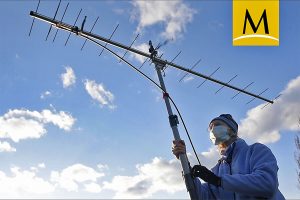 “A close-knit culture, with separation at its core” is a story and accompanying video produced by Christian Science Monitor staff photographer Anne Hermes. It explores how Amateur Radio operators are taking COVID-19 and social distancing in stride and features interviews with Eastern MA hams. It portrays the hobby in a very positive light.
“A close-knit culture, with separation at its core” is a story and accompanying video produced by Christian Science Monitor staff photographer Anne Hermes. It explores how Amateur Radio operators are taking COVID-19 and social distancing in stride and features interviews with Eastern MA hams. It portrays the hobby in a very positive light.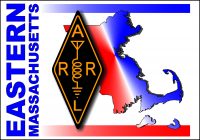

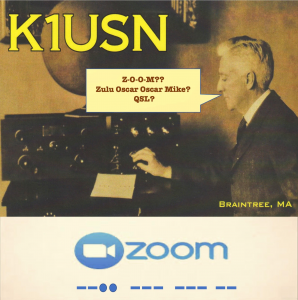 The next
The next  The
The 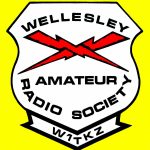 Dan Brown, W1DAN, writes on the Wellesley ARS mailing list:
Dan Brown, W1DAN, writes on the Wellesley ARS mailing list: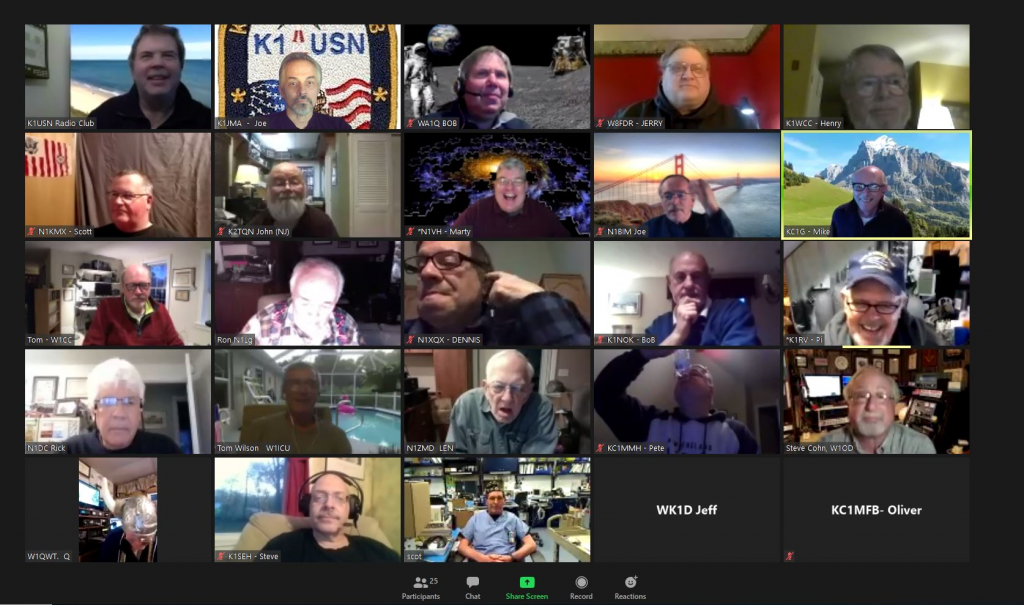
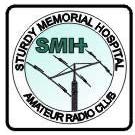 Ray Cord, K2TGX, writes on the Sturdy Memorial Hospital ARC mailing list:
Ray Cord, K2TGX, writes on the Sturdy Memorial Hospital ARC mailing list: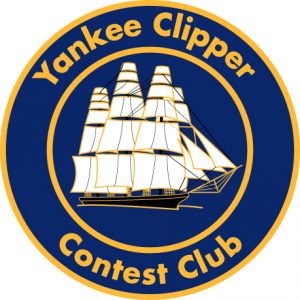 John Dorr, K1AR, writes on the Yankee Clipper Contest Club mailing list:
John Dorr, K1AR, writes on the Yankee Clipper Contest Club mailing list: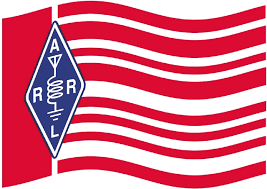 The following correspondence was posted on the ARRL-Awards mailing list on May 8, 2020 in response to a query about a pending award:
The following correspondence was posted on the ARRL-Awards mailing list on May 8, 2020 in response to a query about a pending award: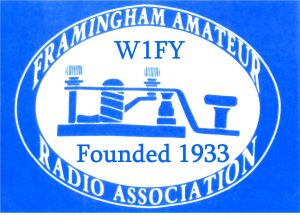 Sumner Weisman, W1VIV, writes on the Framingham ARA mailing list:
Sumner Weisman, W1VIV, writes on the Framingham ARA mailing list: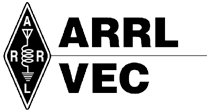 From ARRL Web:
From ARRL Web: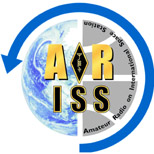 From ARRL Web:
From ARRL Web: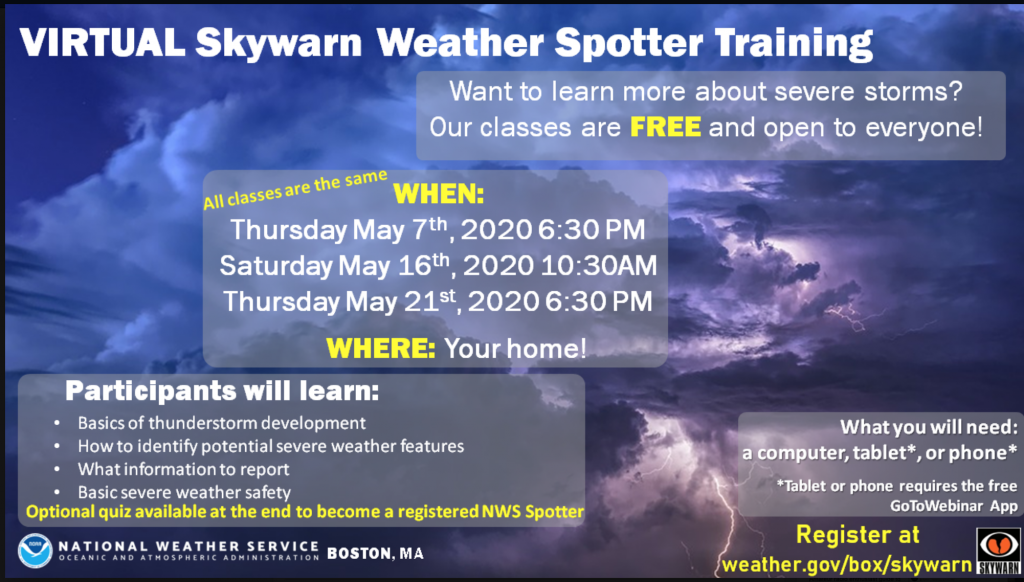
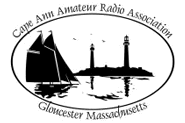 Hank McCarl, W4RIG, CAARA President, writes on the CAARA mailing list:
Hank McCarl, W4RIG, CAARA President, writes on the CAARA mailing list: New England Amateur Radio Inc (
New England Amateur Radio Inc (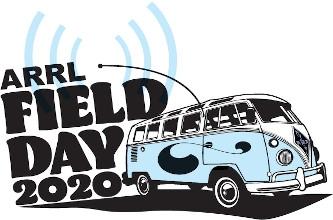 From ARRL Web:
From ARRL Web: